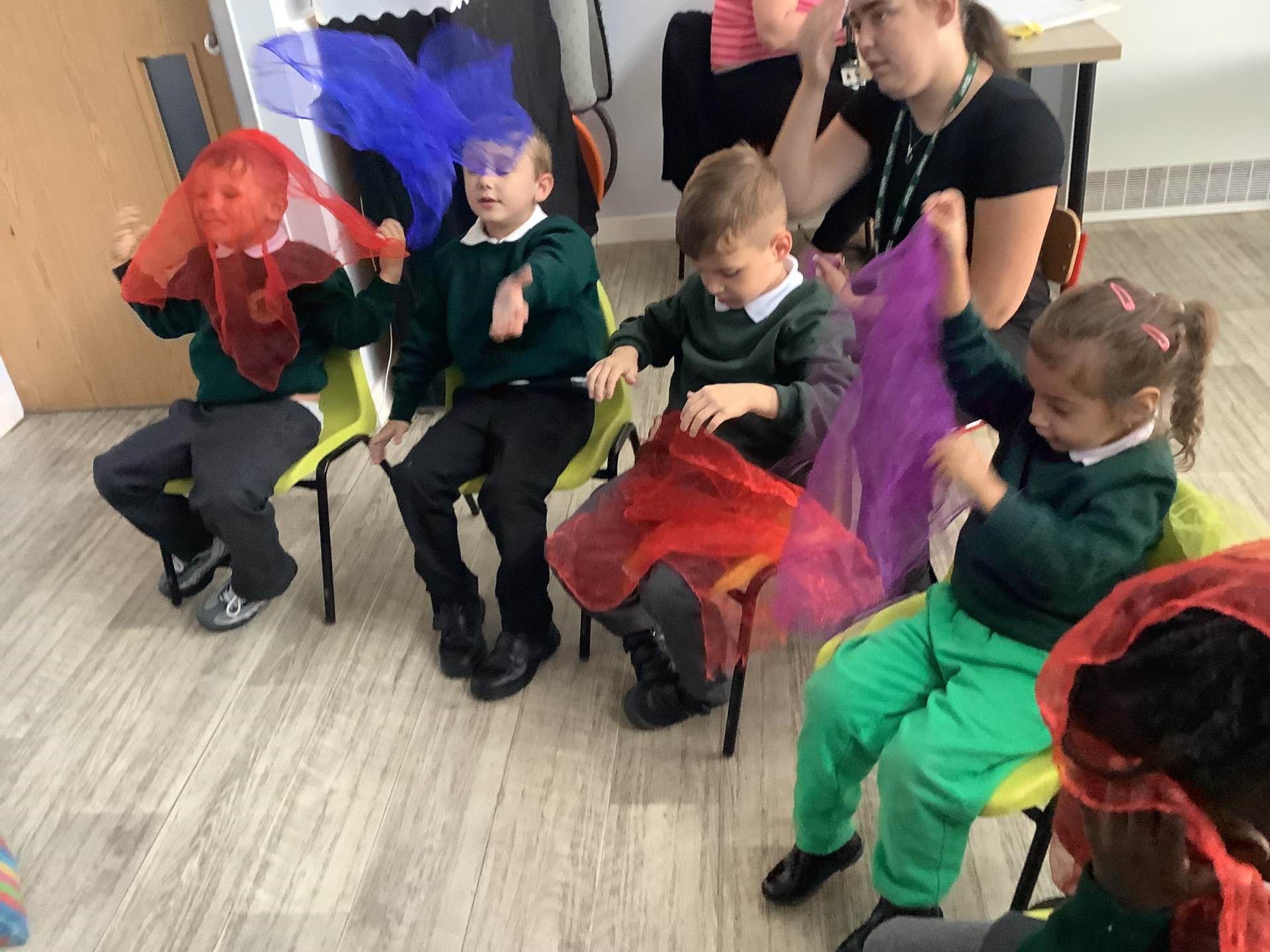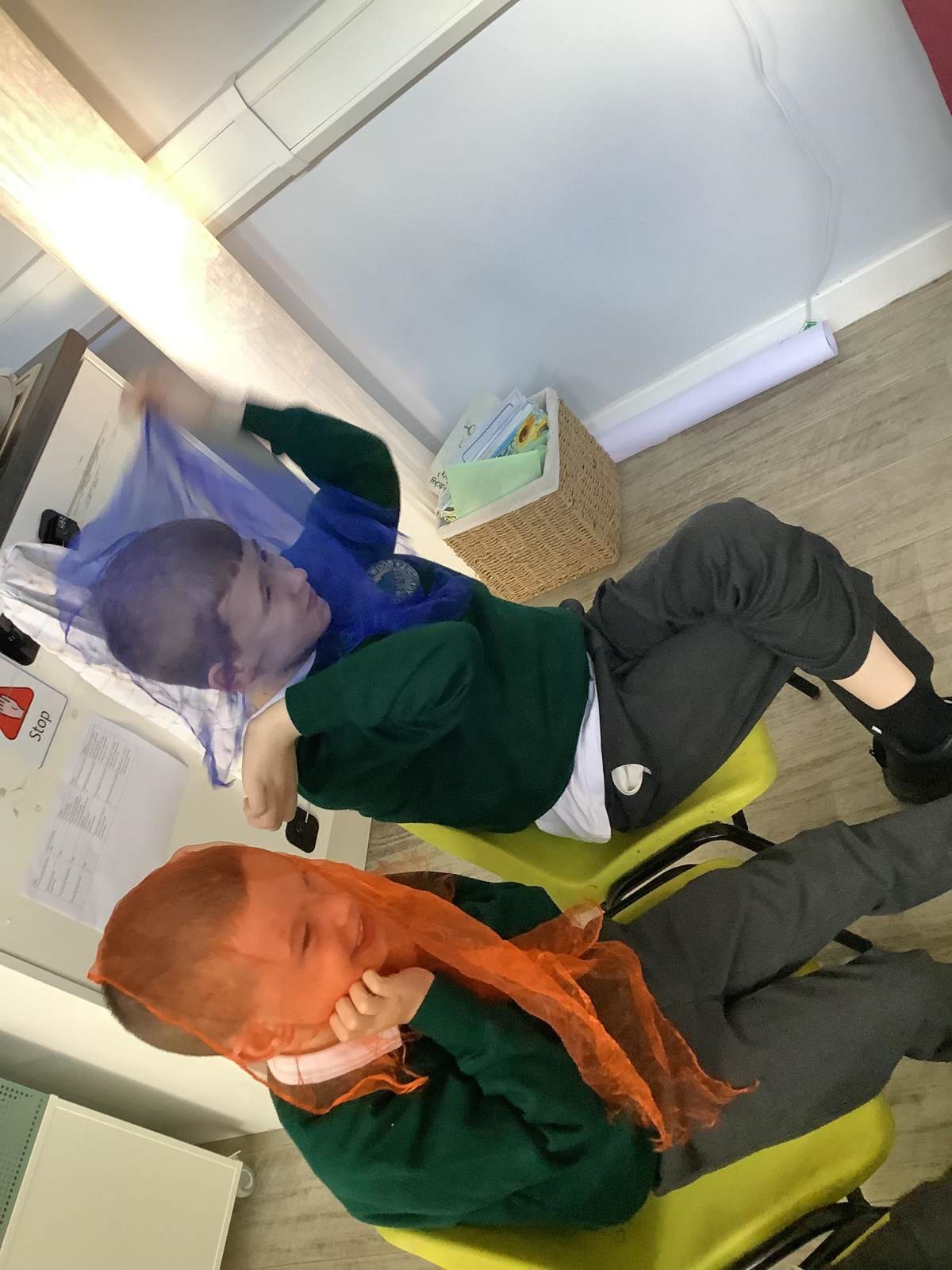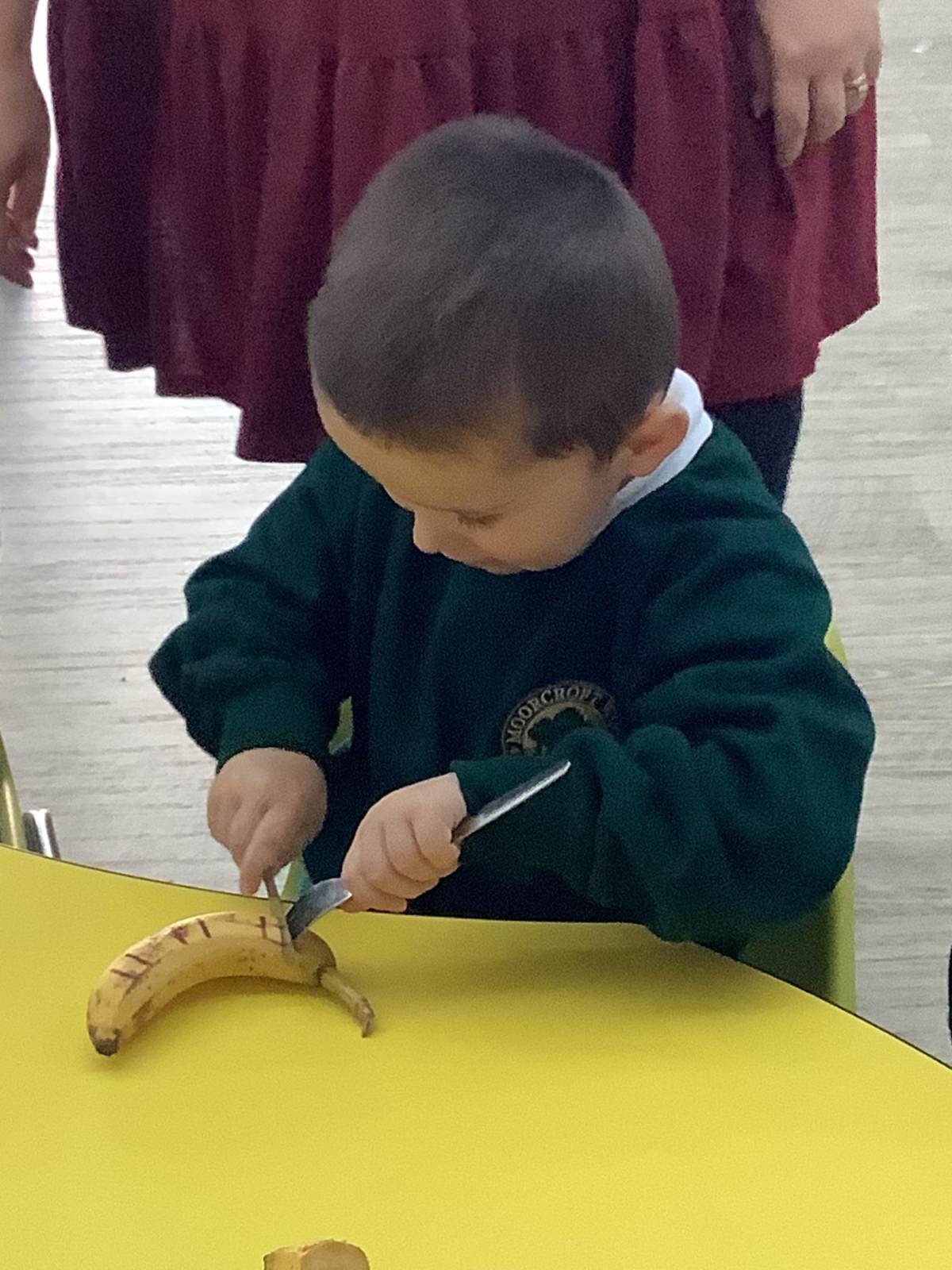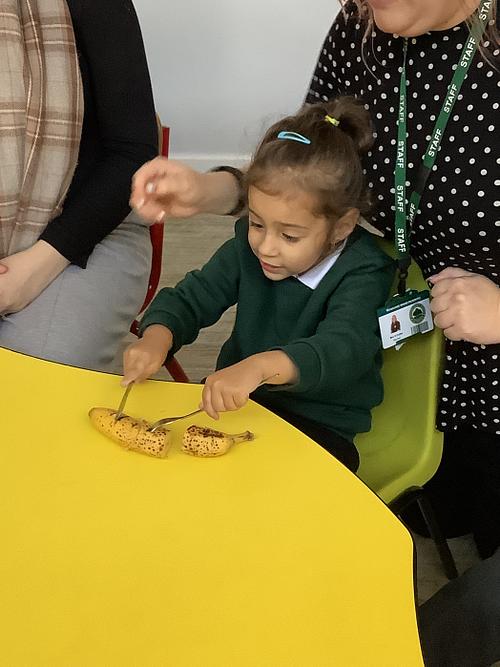The Nest

Meet the Team
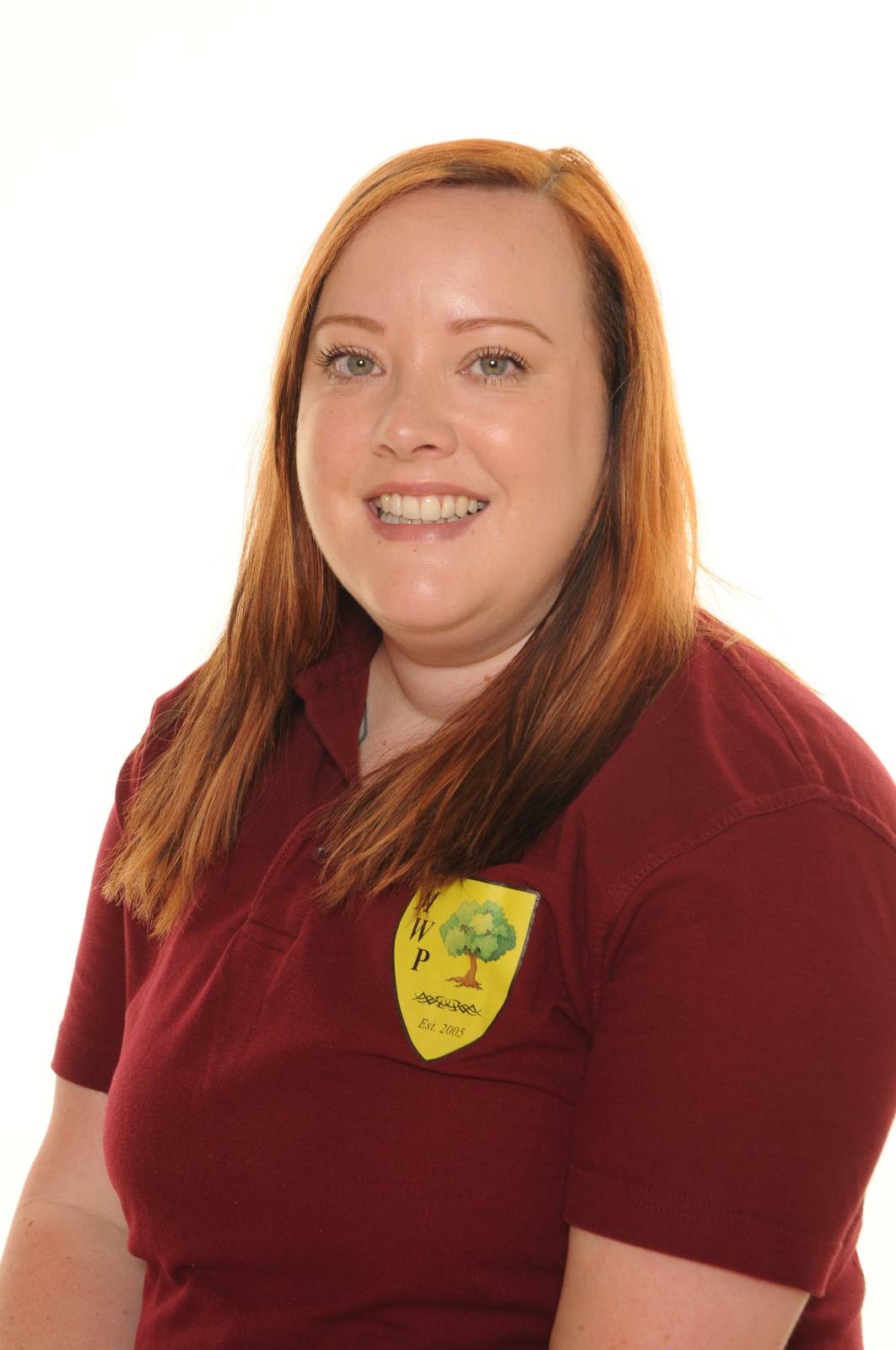

Mrs Cutler - SRP Teacher Mrs Capewell - Teaching assistant

Miss Price - Teaching assistant
Welcome to our class page
Here you will find all you need to know about the Nest, see some of the amazing work the children have produced as well as our bespoke sensory curriculum.
Some important things for the year:
-
PE day is Tuesday - Children to come in their PE kit (black joggers/shorts, a white T-shirt, black hoodie and trainers)
-
Reading books and diaries will be checked and changed on Fridays.
-
Children to be heard read or read to at home three times per week
-
Forest school is on Friday mornings with sensory activities in the afternoons - children need wellies and waterproof attire.
If you have any questions please see me on the door at the start and end of each day or message me via Class Dojo
Spring 1 Topics
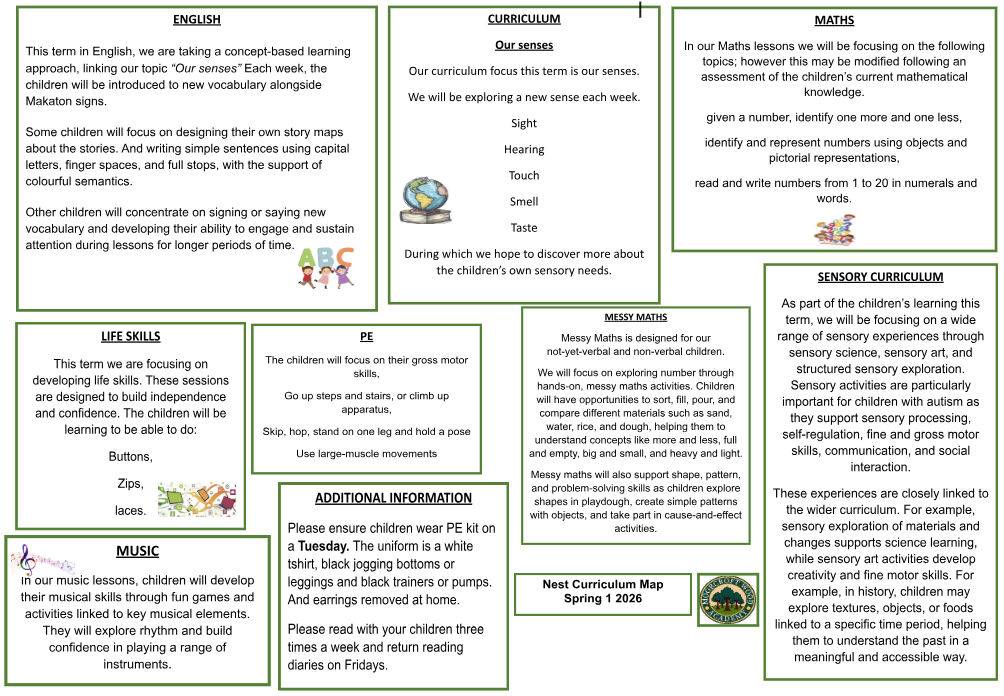
Learning Pathways
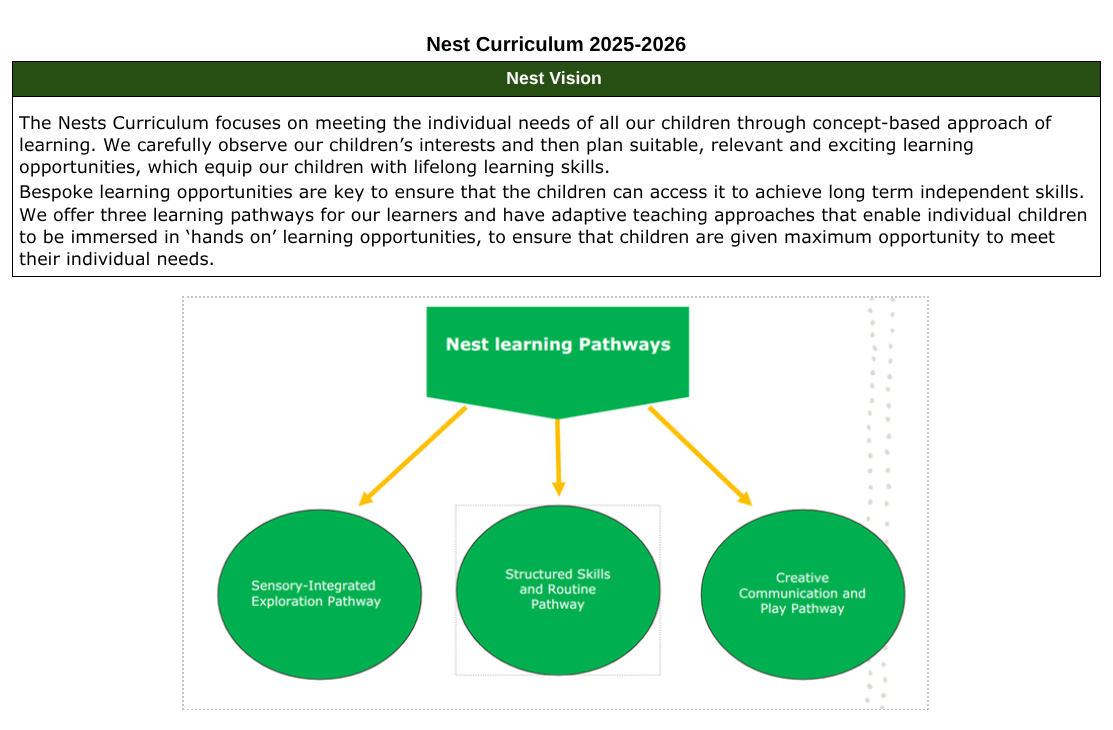
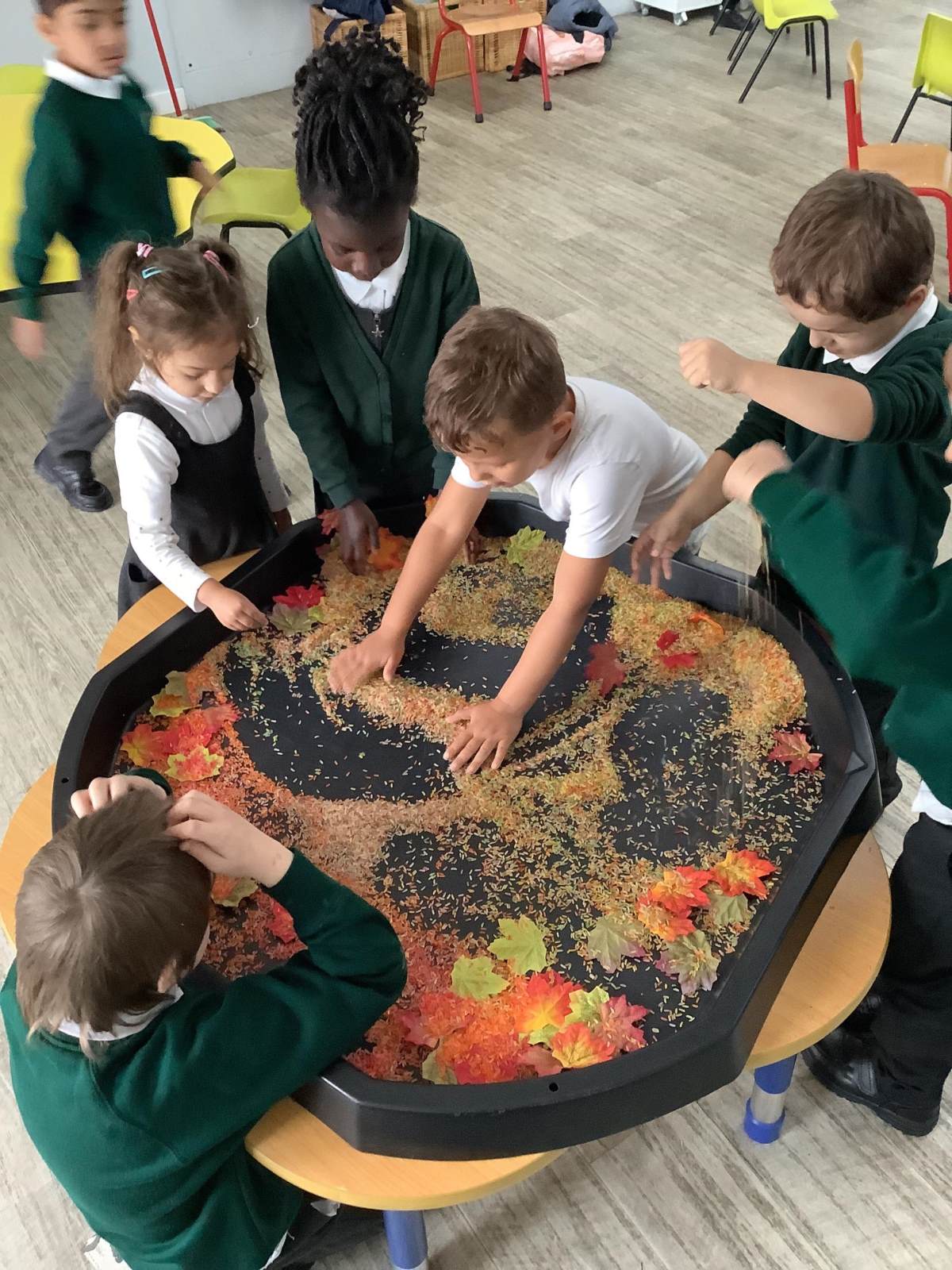
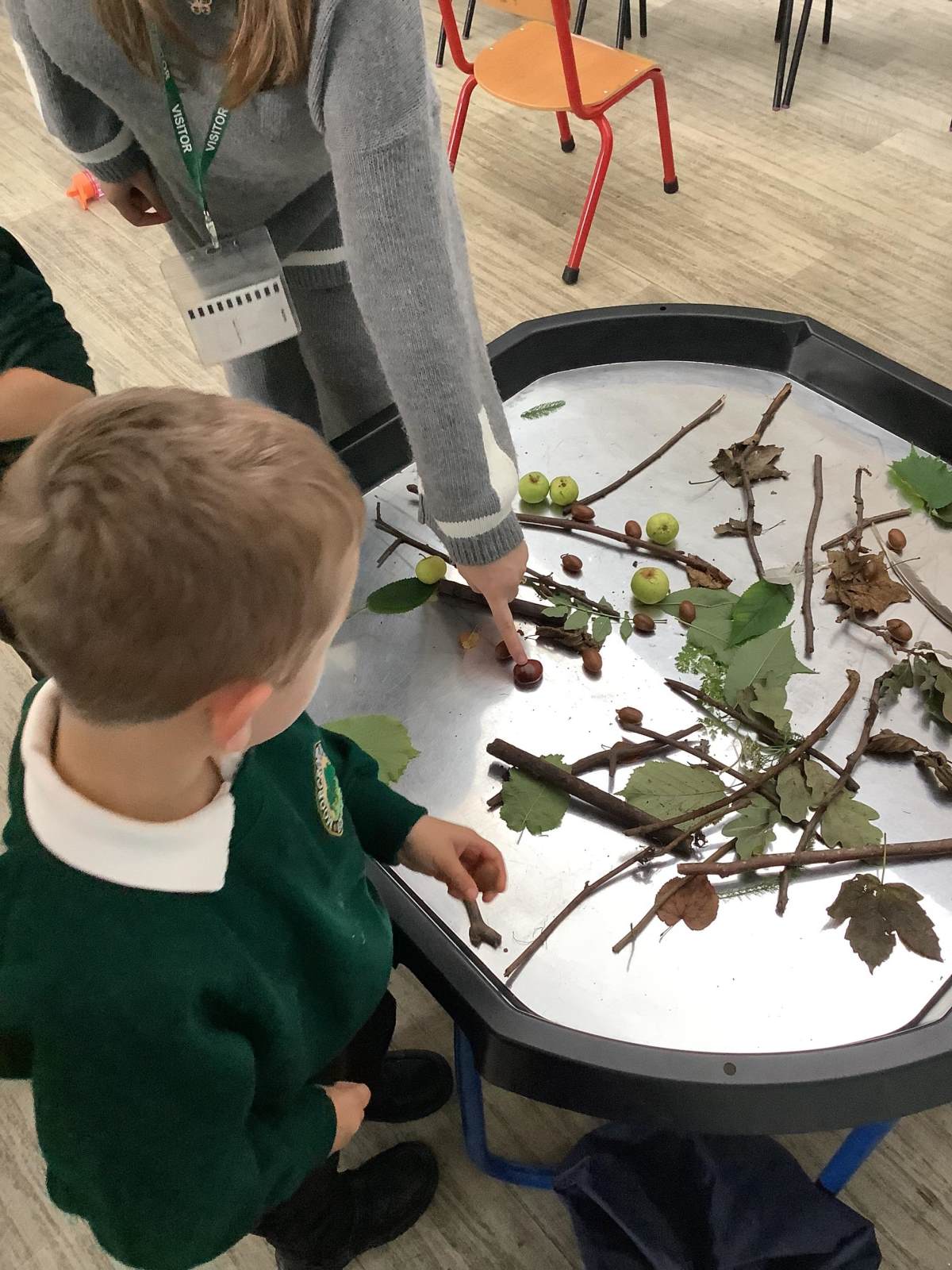
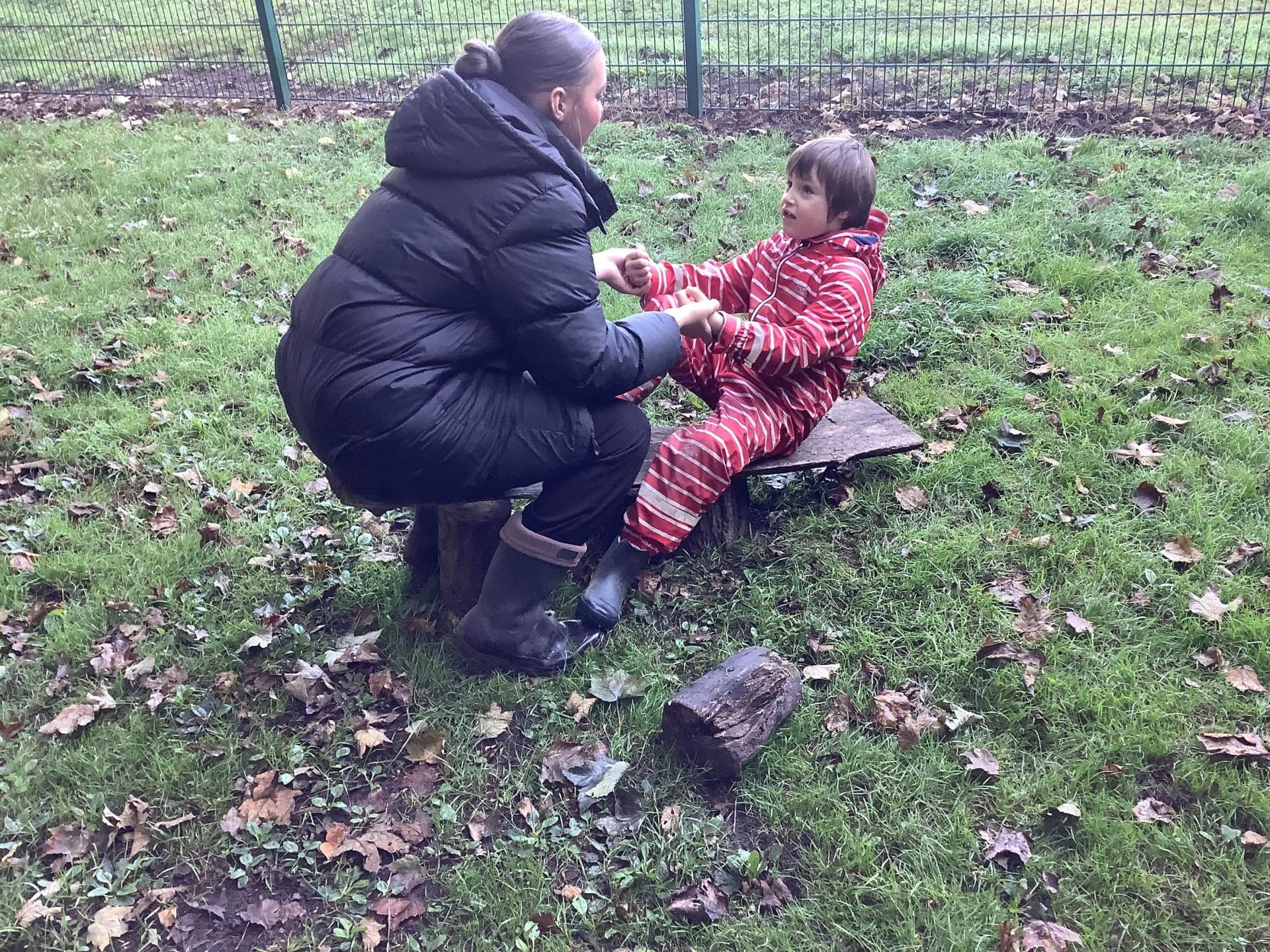
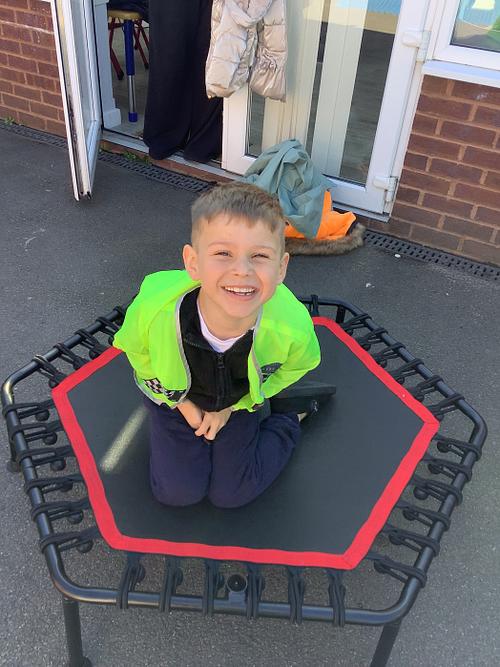
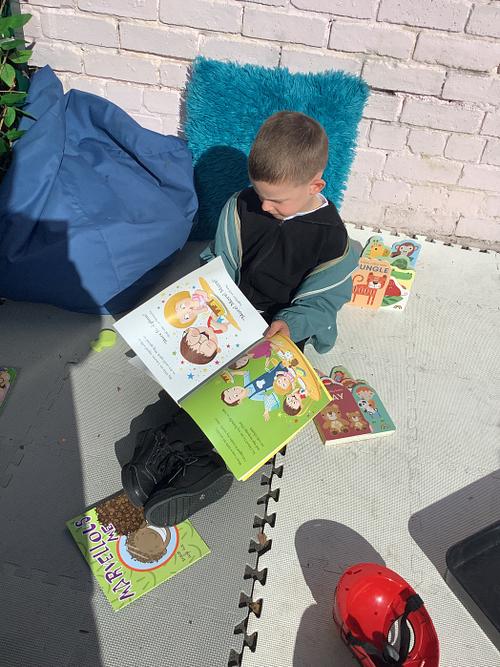
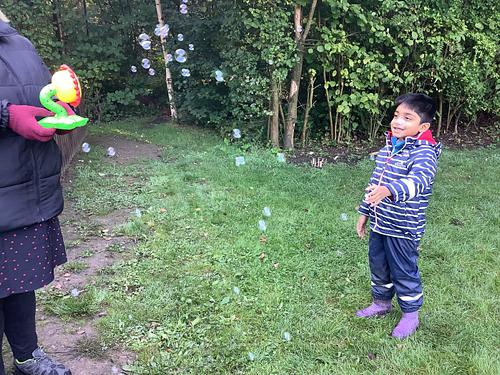
Jolly Phonics
Children are grouped into two for Jolly Phonics sessions.
These sessions involve learning sounds, blending, reading and writing skills.
The Jolly Phonics scheme effectively supports children with autism, including non-verbal learners, by using a multi-sensory approach that combines visual, auditory, and kinesthetic learning. Its clear structure, consistent routines, and engaging actions help children make meaningful connections between sounds and letters. For non-verbal children, the use of gestures and songs offers an accessible and inclusive way to participate, communicate, and develop early literacy skills. This approach fosters confidence, encourages engagement, and provides a strong foundation for reading and communication in a supportive, structured environment.
To further support this we also have phonic continuous provision!
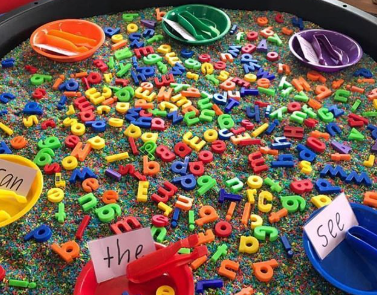
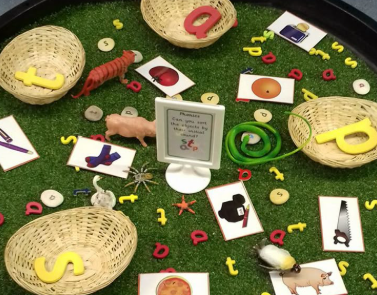
English
In English, lessons are closely linked to our termly topic, ensuring that learning is connected and meaningful across the curriculum. This thematic approach supports children’s understanding and development by providing context and continuity. We enhance this further through the use of Widgit symbols and Colourful Semantics, which offer visual structure and support for all learners. These tools are particularly beneficial for our non-verbal pupils, enabling them to engage with language, build comprehension, and express themselves more confidently within a supportive and inclusive environment.
Using Colourful Semantics in English lessons supports children with autism, particularly non-verbal learners, by providing a clear and visual framework for sentence construction. By colour-coding parts of a sentence—such as who, what doing, what, and where—this approach helps children understand grammar and develop expressive language skills in a structured, predictable way. For non-verbal children, it offers alternative means of communication through symbols and visuals, promoting inclusion and engagement. Colourful Semantics builds confidence, supports comprehension, and enhances communication, making it a valuable tool in creating an accessible and inclusive learning environment.
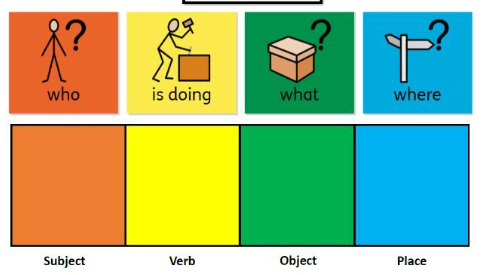
Messy Maths
Messy Maths supports children with autism, including non-verbal learners, by providing hands-on, sensory-rich experiences that make abstract mathematical concepts more concrete and engaging. Through activities involving natural materials, textures, and movement, children can explore number, shape, and pattern in a way that suits their individual learning styles. For non-verbal children, this approach encourages communication, problem-solving, and interaction without relying solely on spoken language. Messy Maths promotes curiosity, builds confidence, and creates meaningful, inclusive learning experiences that support the development of both mathematical understanding and essential life skills.
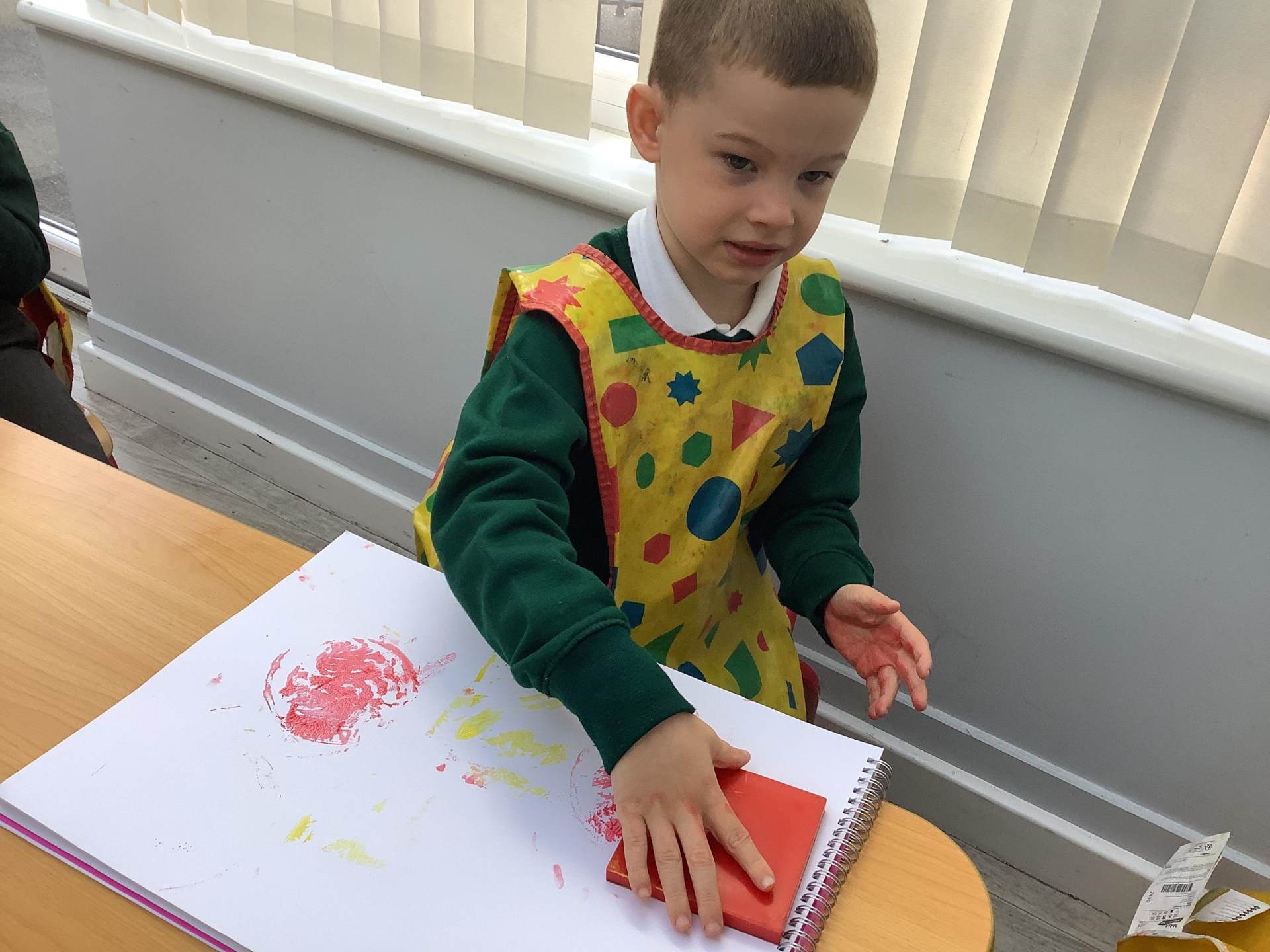
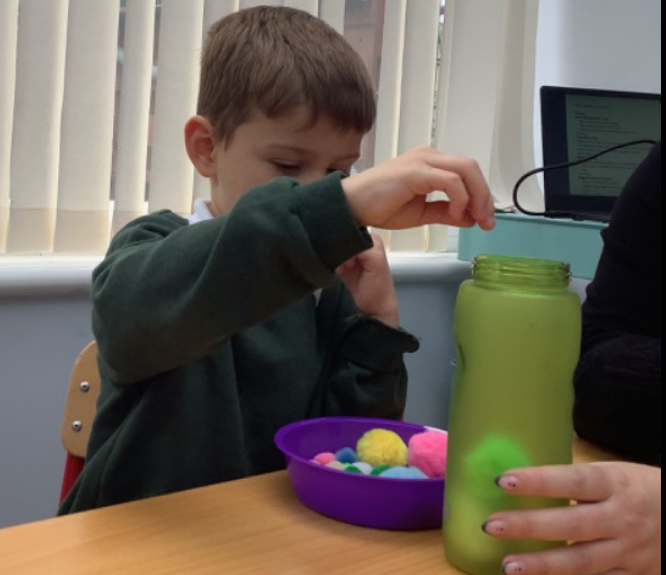
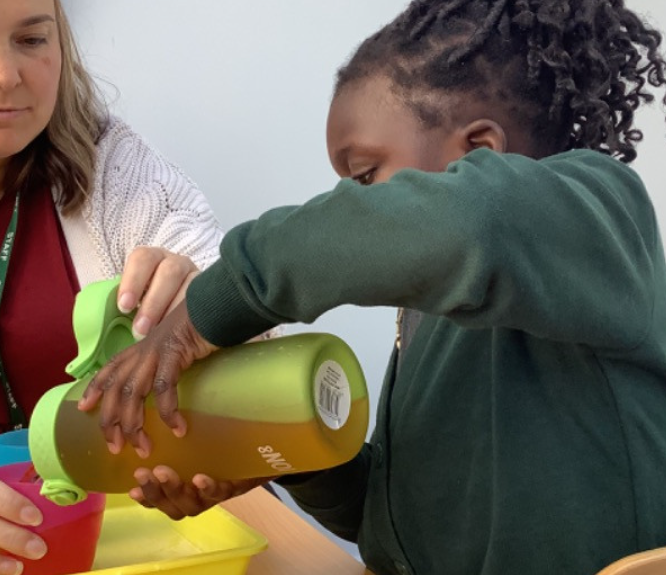
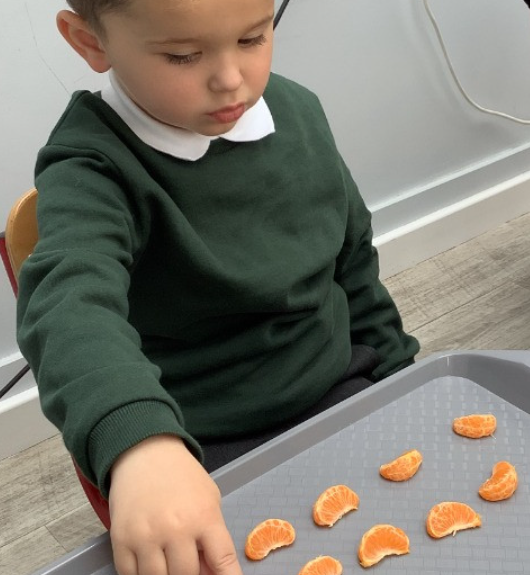
Maths
Using hands-on learning alongside the EYFS framework in maths lessons provides essential support for children with autism by making learning practical, engaging, and accessible. Through sensory-rich, play-based activities, children can explore mathematical concepts in a concrete and meaningful way, which supports deeper understanding and retention. This approach aligns with the EYFS emphasis on exploration and active learning, allowing children to progress at their own pace. For autistic learners, it offers structure, predictability, and opportunities for communication and interaction, creating a supportive environment where every child can thrive.
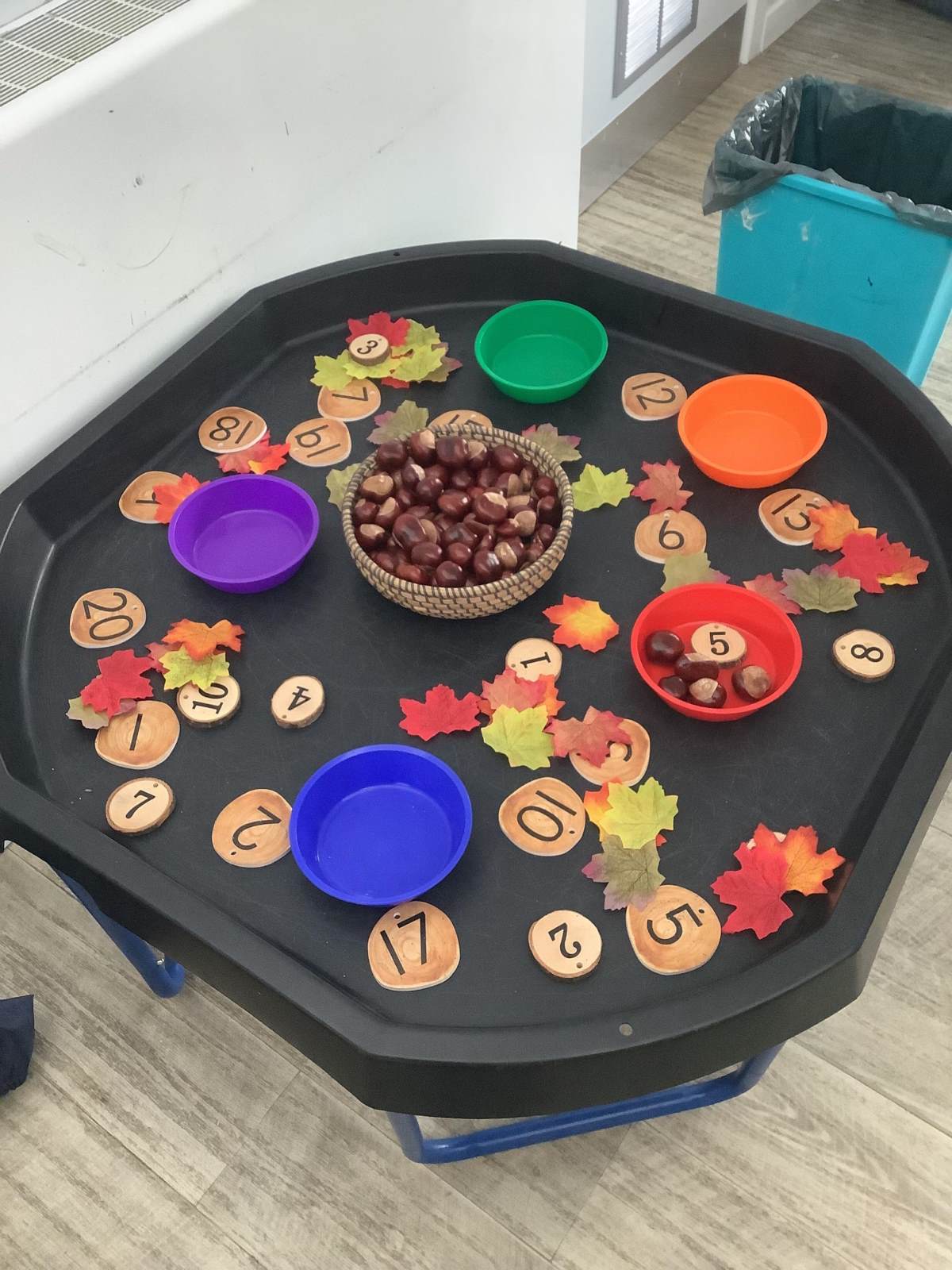
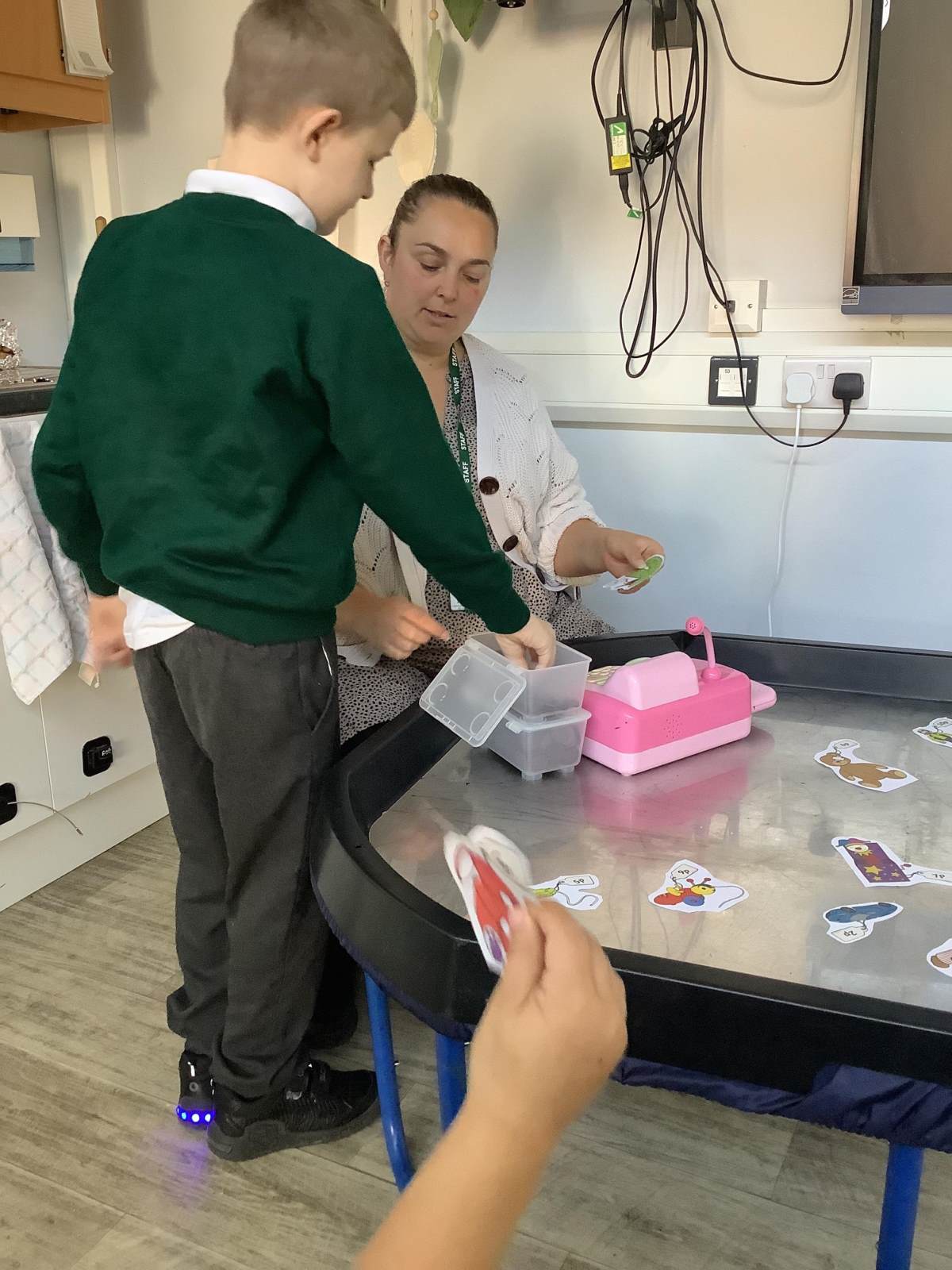
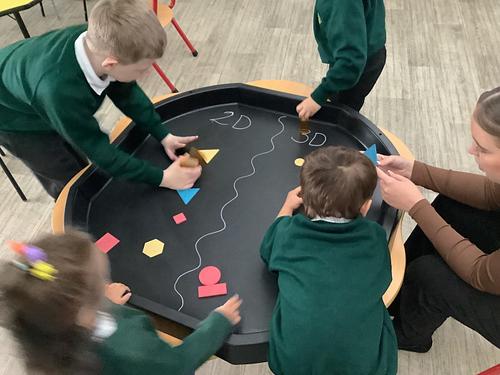
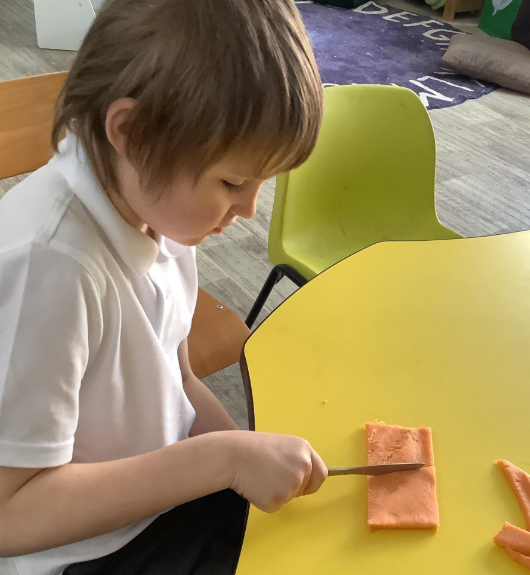
Life Skills
Life skills lessons are a vital part of the curriculum for children with autism, helping to prepare them for greater independence and confidence in everyday life. These lessons focus on practical activities such as cooking, personal hygiene, money handling, road safety, time management, and social interaction. By teaching these essential skills in a structured and supportive environment, children develop routines, improve communication, and build self-esteem. Life skills lessons also encourage problem-solving and adaptability, equipping autistic learners with the tools they need to navigate the world beyond the classroom with greater ease and confidence.
Sensory Curriculum
Making curriculum lessons such as Art, Understanding the World, and Music sensory-rich is especially important for children with autism, as it allows them to engage through their preferred learning styles and sensory strengths. Sensory experiences—such as exploring textures in art, handling real-world objects, or feeling vibrations in music—help make abstract concepts more concrete and meaningful. This approach supports communication, emotional regulation, and active participation, particularly for children who may find traditional teaching methods challenging. By creating inclusive, sensory-based lessons, we ensure that all learners can access the curriculum in a way that fosters curiosity, confidence, and creativity.
